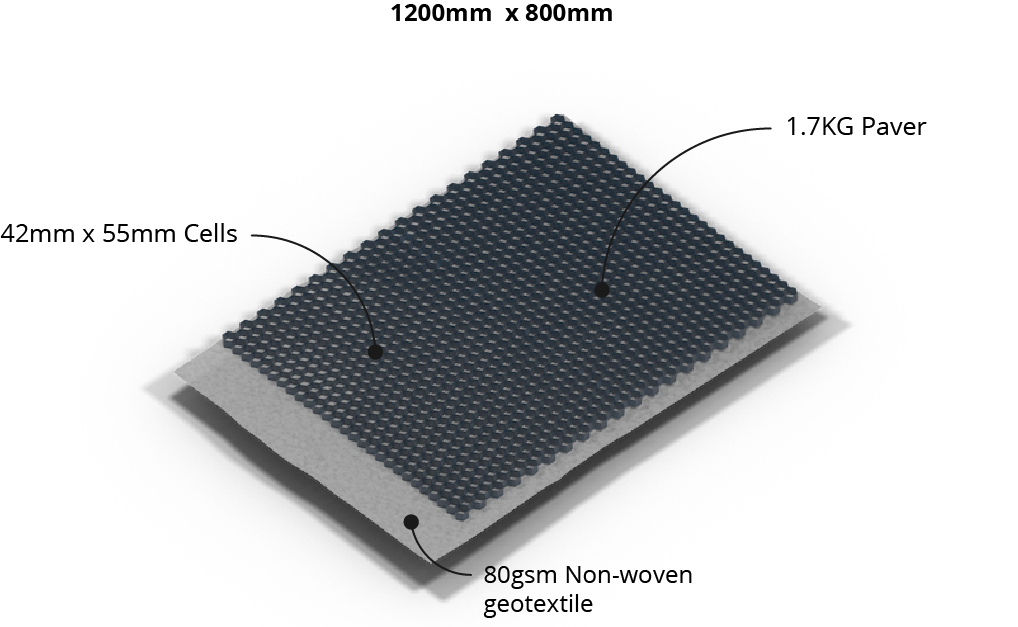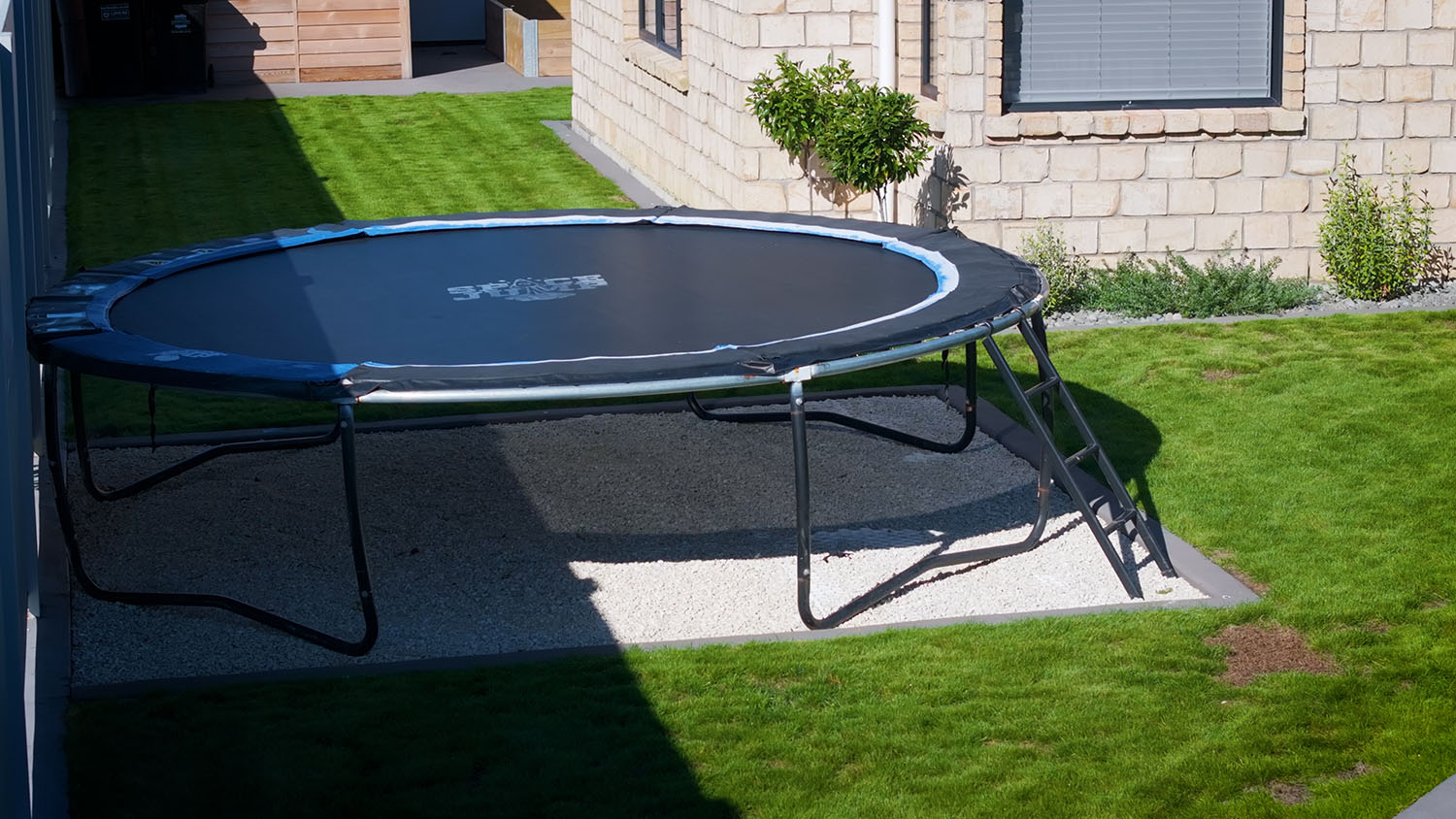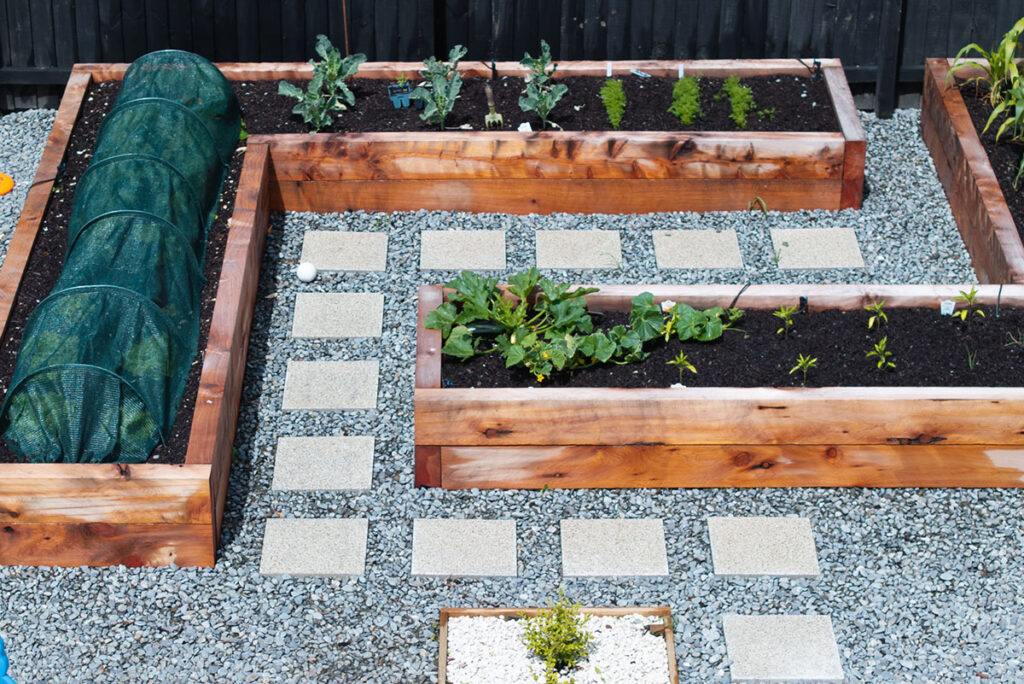Facebook
Twitter
LinkedIn
Pinterest
Reddit
WhatsApp
What Are Permeable Pavers – and Why NZ Landscapers Love Them
New Zealand’s natural beauty and dramatic landscapes often inspire homeowners to create outdoor spaces that blend seamlessly with their environment. But this relationship with nature brings challenges too, especially when it comes to hard landscaping. Traditional paving options, such as poured concrete or tightly sealed pavers, often struggle with the realities of our climate. Pooling water, surface runoff, erosion and heat retention are all common issues that can affect driveways, patios and garden paths.
In addition to being visually stark, many conventional surfaces create functional problems, particularly in regions with heavy rainfall or variable weather conditions. These hard, impermeable surfaces contribute to excessive stormwater runoff and flooding over time. It’s an issue that’s become especially relevant in a country that values sustainability and resilient design.
This is where permeable pavers can have a large impact on the way we think about drives and pathways. Designed to naturally manage water, reduce surface temperature and soften the look of hardscapes, permeable paving is quickly becoming a preferred choice for homeowners and landscapers throughout New Zealand. Whether it’s a sustainable driveway, a pathway winding through a native garden, or a modern courtyard, the benefits of eco-friendly paving are hard to ignore, so today, we’re going to explore all the benefits permeable pavers provide in the sections below.
- Traditional paving contributes to runoff, flooding and heat retention
- New Zealand’s wet climate demands better outdoor solutions
- Permeable pavers offer beauty, functionality and sustainability
What Are Permeable Pavers?

Permeable pavers are a type of hardscaping material designed to let water flow through the surface and into the ground below. Unlike traditional paving or concrete slabs, which create a watertight barrier, permeable systems are engineered to work with nature. These pavers have a cell structure that is filled with small, natural aggregates such as pebbles or coarse sand. This allows rainwater to pass directly through the pavers and soak evenly into the surrounding environment over time, helping to reduce runoff and support healthier soil and vegetation.
The key difference lies in structure. While standard pavers are set close together on a compact base, permeable pavers are laid over a specially prepared bed that absorbs and channels water. Imagine your path or driveway having a built-in drain across the entire surface, ready to absorb and channel all that water when it rains.
For homeowners who care about design, these aren’t compromise options. Natural Paving pavers offer texture, warmth and variety in a way that flat, uniform concrete does not. Whether you’re designing a sleek, modern outdoor entertaining area or a rustic garden path, Natural Paving Black and Cream pavers offer flexible solutions that deliver outstanding functionality while significantly enhancing the curb appeal of your home.
- Permeable pavers allow water to pass through the natural aggregate surface
- They manage drainage while protecting surrounding gardens and soil
- Are visually attractive with natural finishes and colours
How Permeable Paving Works

To understand the benefits of permeable paving, it helps to look briefly at how the system works. Each layer plays an important role in managing water and supporting structural integrity.
At the top, the honeycomb cells within the pavers are filled with your chosen surface material, in most cases decorative pebbles. Next, Natural Paving has a geotextile backing bonded to the underside that filters water away from the surface while preventing the decorative stones from pushing through.
Beneath that is a bedding layer, which helps stabilise the surface and encourage vertical drainage. Below that sits the base layer, made from a coarser aggregate, designed to temporarily hold water and slowly release it into the ground. It’s good practice to have a geotextile layer under the drainage aggregate to separate it from the softer subbase below. This will help prevent potholes and rutting. You may also want to include drainage pipes for enhanced water dispersal in areas prone to excess runoff.
What sets this system apart from concrete is how well it mimics natural ground absorption. Instead of forcing water across a sealed surface and into drains – or worse, across garden beds and into neighbouring properties – permeable paving gently slows and filters the water where it falls. This helps prevent scouring, supports nearby plant life and reduces the risk of downstream flooding.
Crucially, the system is as effective on driveways as it is on patios or pathways. With proper installation, permeable paving can easily handle the weight of vehicles while still allowing rainfall to percolate through.
- Permeable systems use layers to direct and absorb rainwater
- Each component plays a role in structural support and stormwater management
- Permeable paving is more sustainable and environmentally friendly than sealed surfaces
Why Landscapers and Homeowners Love Permeable Paving in NZ

- Smart Drainage, Less Runoff
New Zealand’s climate is unpredictable, with frequent downpours followed by long dry spells. That’s why effective driveway drainage solutions are critical. With permeable paving, surface water is absorbed quickly and efficiently, reducing puddling, soil erosion and pressure on stormwater systems. For sloping sites or urban areas prone to flash flooding, this makes all the difference.
Driveways, courtyards and patios benefit most. Instead of developing algae-covered puddles or cracked concrete patches, the surface remains usable, stable and visually appealing all year round.
1.Council-Friendly Compliance
In many parts of New Zealand, local councils are introducing rules around stormwater management and resource consents. By using permeable pavers, homeowners and developers may find it easier to meet these requirements, particularly when increasing hard surface areas. As more urban centres prioritise green infrastructure, flood-resistant landscaping becomes not just a personal preference but a planning advantage.
2.Durable, Low Maintenance
Despite their water-friendly design, permeable paving systems are surprisingly tough. They stand up to daily foot traffic, the weight of cars and the demands of family life. Individual pavers can be lifted and replaced if needed, which reduces long-term repair costs. As for upkeep, a regular sweep is often all that’s needed to keep things tidy. Simply brush any loose pebbles back into place to maintain permeability and appearance.
These elements make permeable pavers an excellent example of low maintenance paving, which can be an important consideration for both busy homeowners or those creating rental or commercial properties.
3.Sustainable and Eco-Conscious
The environmental advantages are among the strongest benefits of permeable paving. These surfaces help restore the natural water cycle by allowing rain to re-enter the ground slowly and safely. This reduces pollution, filters debris and supports nearby plant roots. As a cooler surface than asphalt or standard concrete, permeable pavers also lessen the urban heat island effect, helping to create more comfortable outdoor spaces.
Whether you’re designing to green building standards or simply looking for more eco-friendly paving options, permeable systems align with today’s sustainability goals.
4.Looks as Good as It Works
Finally, it’s hard to ignore the visual impact. With a variety of finishes and natural materials available, permeable surfaces don’t just perform well – they look fantastic too. Natural Paving offers black and cream pavers that complement New Zealand’s diverse architectural styles, from modernist coastal homes to traditional villas. Just fill them with the desired colour of stone to match your style and home.
Whether used as a fully sustainable driveway or decorative garden feature, Natural Paving pavers deliver elegance without sacrificing the practicality of a hard surface.
- Smart drainage solutions for New Zealand’s wet climate
- Permeable paving supports council compliance
- Durable and easy to maintain over time
- Environmentally responsible and supportive of natural systems
- Aesthetic finishes suit all styles of outdoor design
Why Natural Paving Is the Premium Permeable Paving Choice

As the demand for sustainable materials grows, Natural Paving stands out as a trusted leader in permeable paving for both residential and commercial applications across New Zealand. What makes Natural Paving unique is the design of their pavers. With a smaller cell size, they securely hold 8–14mm pebbles in place, preventing displacement over time. This provides a tidy, finished surface that remains functional and beautiful even with heavy use. The bonded geotextile backing also makes them incredibly easy to install.
Available nationwide through major trade suppliers and landscaping retailers, Natural Paving products are designed with the local climate in mind. From Auckland’s rainy winters to Central Otago’s dry, sunbaked summers, their paving holds up under pressure. Made from quality materials and designed for both DIY and professional installation, Natural Paving pavers suit everything from small garden paths to large commercial courtyards.
The easy installation process, combined with the enduring performance and premium finish, makes Natural Paving a preferred option among landscapers, designers and homeowners. With smart planning and simple execution, Natural Paving offers an economical solution without compromise.
- Natural Paving offers high-performance, permeable pavers across NZ
- Smaller cell size keeps surface aggregate secure
- Available through retailers and trade stores nationwide
- Ideal for both DIY and professional landscape projects
From better drainage and council compliance to long-term durability and natural beauty, Natural Paving permeable pavers offer a complete solution for New Zealand homes.
With the right materials, your outdoor space can be more than just functional – it can be beautiful, sustainable and built for the long run.
